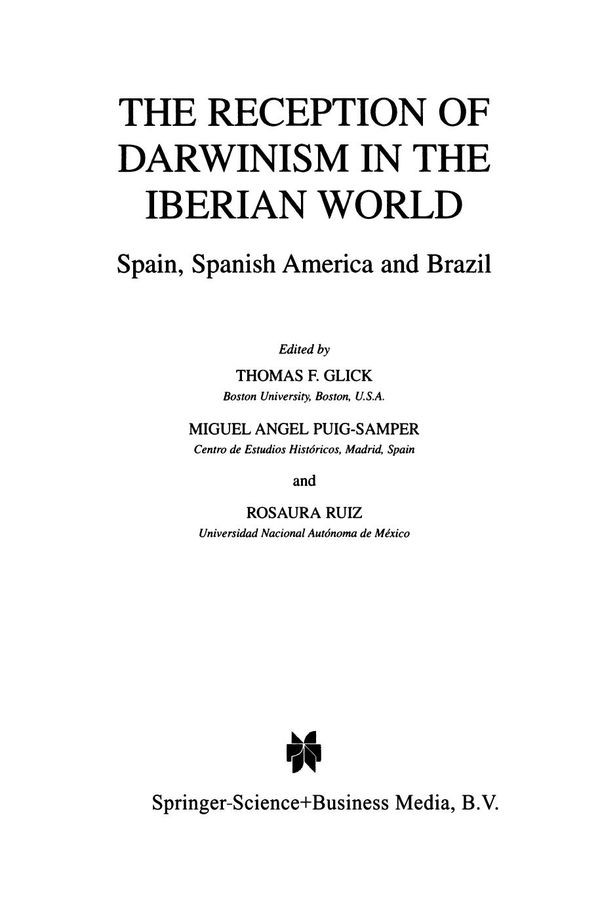

Most ebook files are in PDF format, so you can easily read them using various software such as Foxit Reader or directly on the Google Chrome browser.
Some ebook files are released by publishers in other formats such as .awz, .mobi, .epub, .fb2, etc. You may need to install specific software to read these formats on mobile/PC, such as Calibre.
Please read the tutorial at this link: https://ebookbell.com/faq
We offer FREE conversion to the popular formats you request; however, this may take some time. Therefore, right after payment, please email us, and we will try to provide the service as quickly as possible.
For some exceptional file formats or broken links (if any), please refrain from opening any disputes. Instead, email us first, and we will try to assist within a maximum of 6 hours.
EbookBell Team

4.1
30 reviewsTwenty-five years ago, at the Conference on the Comparative Reception of Darwinism held at the University of Texas in 1972, only two countries of the Iberian world-Spain and Mexico-were represented.' At the time, it was apparent that the topic had attracted interest only as regarded the "mainstream" science countries of Western Europe, plus the United States. The Eurocentric bias of professional history of science was a fact. The sea change that subsequently occurred in the historiography of science makes 1972 appear something like the antediluvian era. Still, we would like to think that that meeting was prescient in looking beyond the mainstream science countries-as then perceived-in order to test the variation that ideas undergo as they pass from center to periphery. One thing that the comparative study of the reception of ideas makes abundantly clear, however, is the weakness of the center/periphery dichotomy from the perspective of the diffusion of scientific ideas. Catholics in mainstream countries, for example, did not handle evolution much better than did their corre1igionaries on the fringes. Conversely, Darwinians in Latin America were frequently better placed to advance Darwin's ideas in a social and political sense than were their fellow evolutionists on the Continent. The Texas meeting was also a marker in the comparative reception of scientific ideas, Darwinism aside. Although, by 1972, scientific institutions had been studied comparatively, there was no antecedent for the comparative history of scientific ideas.